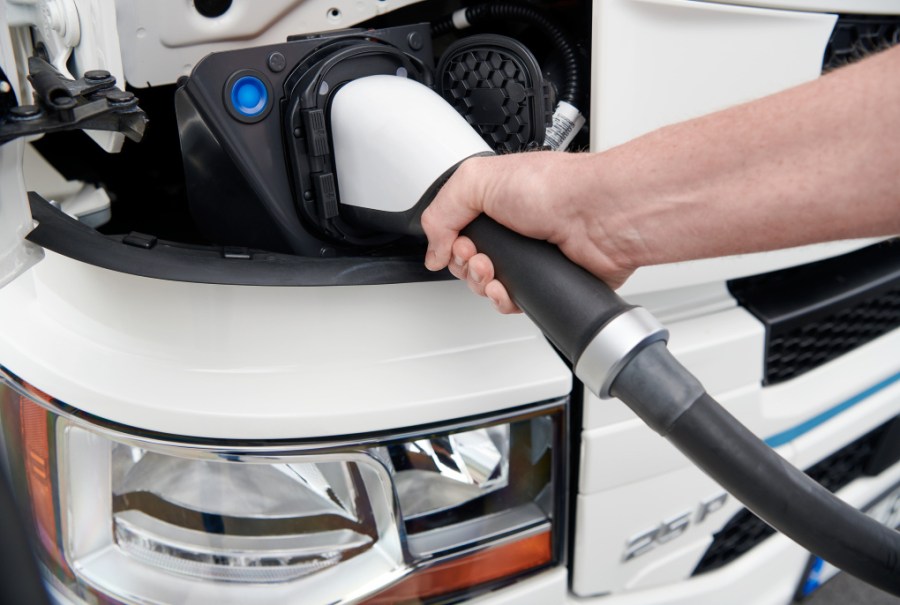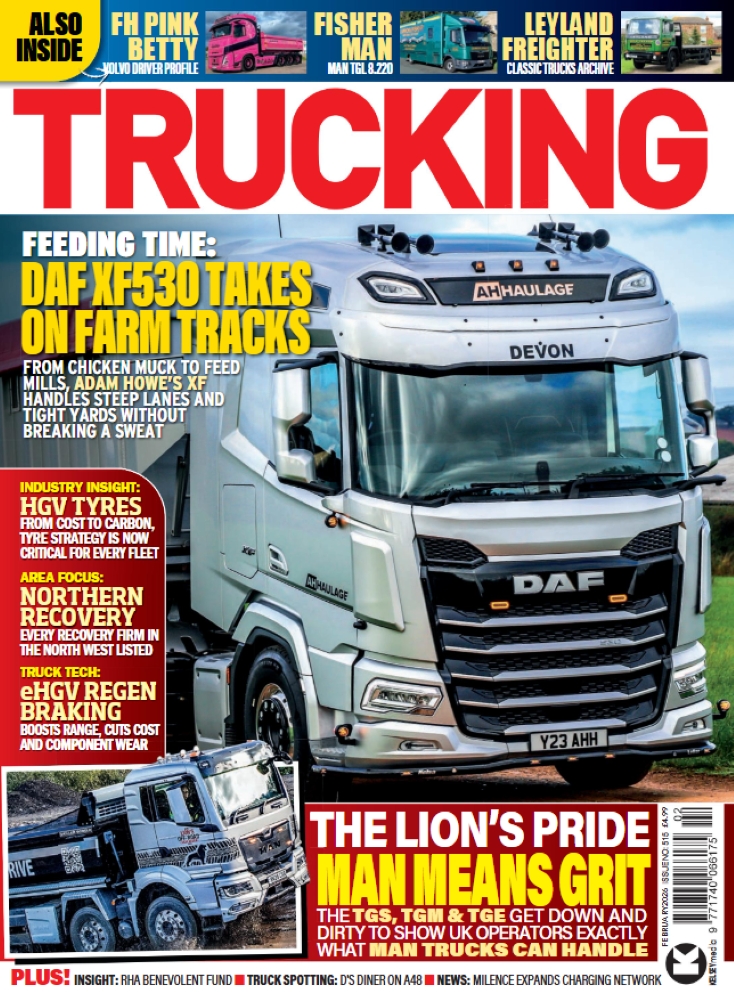As the haulage world continues to move away from fossil fuels, Scania has revealed details of its electric and hydrogen future.
Battery electric vehicles will be the biggest driver in the move to a sustainable transport system, says Scania.
Battery technology and charging times are constantly improving, making electric trucks more appealing – for both drivers and for operators.
Scania believes that this form of propulsion will overtake diesel- and biofuel-powered vehicle sales sooner rather than later.
“We see battery electric solutions are the first zero-tailpipe emission technology to reach market broadly,” said Alexander Vlaskamp, head of sales and marketing at Scania.
“For the customer, a battery electric vehicle requires less service than a conventional one,” he added. “That means higher uptime and improved costs per km or hour of operations.”
Vlaskamp said the company has learned from the bus industry, where electric vehicles have matured relatively quickly. “It also gave us good base knowledge as we ramp up the electrified truck business,” he stated.
Scania already has a fully electric truck in its range, as well as a plug-in hybrid offering. The goal is to broaden this range with more electric and hydrogen options for operators in the future.
Hydrogen remains another power source that the manufacturer is looking at, most recently with Westport Fuel Systems.
The two companies have announced plans to jointly research a high pressure direct injection (HPDI) hydrogen fuel system. The technology would be developed to work with Scania’s latest engine technology on upcoming vehicles.
Eric Olofsson, senior technical advisor at Scania, believes collaboration is key to success with the advanced technology. “We invested early on in hydrogen technologies. The knowledge we achieve when participating in research projects enables us to make the best possible offering to our customers.”




